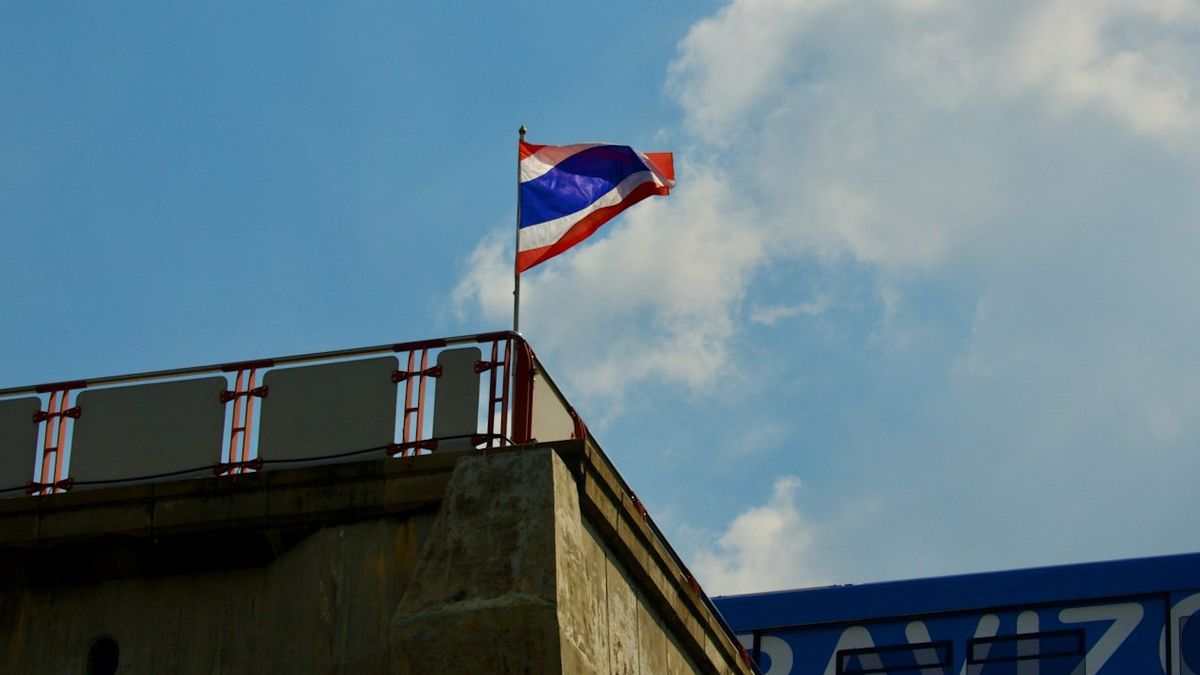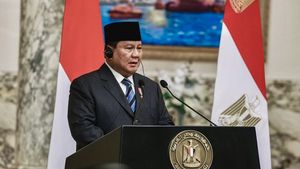JAKARTA - Thailand has established manufacturing sectors, particularly in the electronics industry, household appliances, including air conditioning and engine refrigeration, and automotive.
This sector has been active since the 1980s and with the presence of foreign multinational companies, it makes the country worth taking into account in the Asian region. Over the years, Thailand has succeeded in building a strong manufacturing infrastructure according to Southeast Asian standards.
The high dependence on local suppliers, networks, and their business ecosystems makes relocation to nearby countries not a priority for several companies. Then, what are the market opportunities and the possibility of cooperation with similar companies in Indonesia?
This will later be revealed in the 'Thailand Industrial Business Matching' event, organized by the Thai Trade Center (TTC) under the auspices of the Department of International Trade Promotion (DITP) at the Kempinski Indonesian Hotel, Jakarta, May 2, 2024.
This event provided facilities for face-to-face meetings between Thai and Indonesian entrepreneurs to explore potential and business opportunities. The event was attended by around 19 Thai entrepreneurs from various sectors, particularly the electronics and household appliances industry, including AC, refrigeration machine, and automotive.
Meanwhile, from Indonesia, this event is supported by businessmen from related industries, such as the Indonesian Automotive Small and Medium Industry Association (PIKKO), the Association of Indonesian Household Electronics and Electrical Equipment Companies (GABEL), as well as the Indonesian Chamber of Commerce and Industry (Kadin), an Indonesian entrepreneurial organization engaged in the economy.
"The landscape of the Thai industry offers many opportunities for expansion and cooperation. With its established manufacturing base and expertise, Thailand is trying to explore synergies with business partners in Indonesia to increase market penetration and take advantage of existing business opportunities," said Mrs. Hataichanok Sivara, Director of Thai Trade Center Jakarta, in a statement, Wednesday, April 3.
This event also serves as a platform to strengthen strategic alliances, facilitate dialogue between industry leaders, and explore more in-depth cooperation on market dynamics. Related parties from Thailand and Indonesia will gather to explore opportunities for cooperation, explore market potential, and design strategies to take advantage of their respective strengths for the sake of mutual growth and success.
The construction sector plays an important role in the country's economy because it is also a growth base for other sectors. GDP from the construction sector has increased over the years, signaling the growing importance of this sector. This contributes to the expansion of the commercial and residential and real estate construction market in Thailand.
Thailand's construction market volume is estimated to reach 26.68 billion US dollars by 2024, and is expected to reach 34.05 billion US dollars by 2029, growing with a compounded annual growth rate (CAGR) of more than 5 percent during the estimated period (2024- 2029).
According to Mrs. Hataichanok Sivara, Director of the Thai Trade Center Jakarta, the growth of the construction industry is partly influenced by the demand for residential units. In addition, there is more construction of domestic shopping centers and restaurants to meet consumer needs. The increasing demand for residential units has also led to an increase in the supply of condominiums, especially in Bangkok and its surroundings.
Currently, the Thai government aims to form several regions into special economic zones that focus on industrial growth. This policy has the potential to be a driving force for larger construction growth in Thailand.
Thailand, with the second-largest economy in Southeast Asia, is at the center of attention in the automotive industry. Promising GDP projections, with a CAGR of 5.4 percent from 2021 to 2025, bring further growth potential in the industry, with an estimated value of 632 billion US dollars at the end of that period.
Analysis of Thailand's automotive market composition revealed the existence of around 1,800 companies in the sector, including several large companies, as well as about 700 automotive parts manufacturers Tier 1, and more than 1,000 Tier 2 and 3 producers. The strong presence of this sector not only reflects the breadth of the current automotive supply chain, but also shows readiness for further growth thanks to its dynamic market structure.
Mrs. Hataichanok Sivara, Director of Thai Trade Center Jakarta, said that factors such as infrastructure that continues to grow, government support for the automotive industry, and market penetration that continues to increase make Thailand an attractive destination for vehicle manufacturers and automotive parts.
With strong growth potential, accompanied by solid infrastructure and government support, Thailand opens opportunities for stakeholders in the automotive industry to invest and develop. Innovation, collaboration, and adaptation to market changes are key to success in this dynamic business environment. Thailand has proven not only as a significant regional player, but also as an influential global actor in the automotive industry.
Thailand's air conditioning market is valued at USD 1645.21 million in 2023 and is expected to grow rapidly in an estimated period of a compound growth rate (CAGR) of 5.93 percent by 2029. The Thai AC market has grown and innovated significantly in recent years.
The presence of AC is very important to maintain comfort in homes, offices, and various commercial spaces. The Thai AC market is characterized by a variety of products, including window units, separate types of systems, portable air conditioning, and more.
Thailand's AC market and refragration machine are not only driven by housing demand but also the commercial and industrial sectors, including hotels, shopping centers, and manufacturing facilities.
The English, Chinese, Japanese, Arabic, and French versions are automatically generated by the AI. So there may still be inaccuracies in translating, please always see Indonesian as our main language. (system supported by DigitalSiber.id)













